Welcome to one of the most active flamenco sites on the Internet. Guests can read most posts but if you want to participate click here to register.
This site is dedicated to the memory of Paco de Lucía, Ron Mitchell, Guy Williams, Linda Elvira, Philip John Lee, Craig Eros, Ben Woods, David Serva and Tom Blackshear who went ahead of us.
We receive 12,200 visitors a month from 200 countries and 1.7 million page impressions a year. To advertise on this site please contact us.
|

|
|
Flamenco is a language
|
You are logged in as Guest
|
|
Users viewing this topic: none
|
|
Login  | |
|

  
Piwin
Posts: 3559
Joined: Feb. 9 2016

|
 RE: Flamenco is a language (in reply to docco) RE: Flamenco is a language (in reply to docco)
|
|
|
Leonard Bernstein famously drew parallels between music and Chomsky's "universal grammar" in his 1973 lectures The Unanswered Question, which are readily available on Youtube. While the comparison was at times somewhat lax, there were nonetheless some interesting insights.
That there are similarities is rather obvious. Both have rules, standards and common practices with regards to grammar, "phonology", prosody, etc. There are teleological similarities as well (communication, expression, etc.). As far as communication between performers, there is a common distinction made between more improvisational forms and recitals. I believe this has been studied in neurosciences, the results being that performers drew on different cognitive abilities for each. I'd imagine the same is true for conversations vs. poetry recitals.
What I often object to is when people say "music is a language", often saying things like "music is a language that transcends borders, cultures, etc." It seems to me that the difference between two musical genres, say, flamenco and gamelan, is just as pronounced as the difference between two languages, say English and Chinese. Communication across forms of music is not straightforward. Perhaps if more people understood this, understood that music is not one language, that each genre is a language in its own right, then the monumental task of creating "fusion" would be more carefully thought out and there would be less crap on the market.
That said, maybe crappy fusion has a role to play. In the same way that neither docco nor I are native English speakers but can still communicate thanks to some form of "globish", so too can performers of different genres communicate with each other through crappy fusion. Though if we really wanted to express ourselves as best we can, then we would have to speak our own language(s) or take an approach to fusion that goes much further than simply using a genre of music as a superficial stepping stone to something else.
_____________________________
"Anything you do can be fixed. What you cannot fix is the perfection of a blank page. What you cannot fix is that pristine, unsullied whiteness of a screen or a page with nothing on it—because there’s nothing there to fix."
|
|
|
|
REPORT THIS POST AS INAPPROPRIATE |
Date Oct. 16 2019 8:11:22
 |
|

   
docco
Posts: 24
Joined: Oct. 11 2019

|
 RE: Flamenco is a language (in reply to Piwin) RE: Flamenco is a language (in reply to Piwin)
|
|
|
quote:
ORIGINAL: Piwin
Leonard Bernstein famously drew parallels between music and Chomsky's "universal grammar" in his 1973 lectures The Unanswered Question, which are readily available on Youtube. While the comparison was at times somewhat lax, there were nonetheless some interesting insights.
That there are similarities is rather obvious. Both have rules, standards and common practices with regards to grammar, "phonology", semantics, etc. There are teleological similarities as well (communication, expression, etc.). As far as communication between performers, there is a common distinction made between more improvisational forms and recitals. I believe this has been studied in neurosciences, the results being that performers drew on different cognitive abilities for each. I'd imagine the same is true for conversations vs. poetry recitals.
What I often object to is when people say "music is a language", often saying things like "music is a language that transcends borders, cultures, etc." It seems to me that the difference between two musical genres, say, flamenco and gamelan, is just as pronounced as the difference between two languages, say English and Chinese. Communication across forms of music is not straightforward. Perhaps if more people understood this, understood that music is not one language, that each genre is a language in its own right, then the monumental task of creating "fusion" would be more carefully thought out and there would be less crap on the market.
That said, maybe crappy fusion has a role to play. In the same way that neither docco nor I are native English speakers but can still communicate thanks to some form of "globish", so too can performers of different genres communicate with each other through crappy fusion. Though if we really wanted to express ourselves as best we can, then we would have to speak our own language(s) or take an approach to fusion that goes much further than simply using a genre of music as a superficial stepping stone to something else.
I like what you say: ".. that music is not one language, that each genre is a language in its own right, then the monumental task of creating "fusion" would be more carefully thought out and there would be less crap on the market ..."
So, there are a lot of genres of music in the world. And one more is that why some genres of music are recognized by UNESCO as an Intangible Cultural (such as Flamenco and Argentina Tango) while the others are not? Do you agree with the UNESCO classification?
|
|
|
|
REPORT THIS POST AS INAPPROPRIATE |
Date Oct. 16 2019 18:21:03
 |
|

   
BarkellWH
Posts: 3458
Joined: Jul. 12 2009
From: Washington, DC

|
 RE: Flamenco is a language (in reply to Piwin) RE: Flamenco is a language (in reply to Piwin)
|
|
|
quote:
What I often object to is when people say "music is a language", often saying things like "music is a language that transcends borders, cultures, etc." It seems to me that the difference between two musical genres, say, flamenco and gamelan, is just as pronounced as the difference between two languages, say English and Chinese.
I couldn't agree more, Piwin. Having spent years living and working in our Embassies in Kuala Lumpur, Malaysia and Jakarta, Indonesia, absorbing gamelan with the sinden, the female singer backed by the gamelan orchestra, while maintaining a love and understanding of flamenco, I can attest that, although each is a form of music, they are too different to be wrapped up together with the term "universal music." They are as different as English and Chinese. I will say, though, that flamenco is probably better understood as a musical form by a variety of cultures than is gamelan. This is probably the result of flamenco being a form of Western music, which is much better understood, even in a country like Japan, than is gamelan.
In a totally different vein, music, especially Western music, has always been compared to mathematics.
Bill
_____________________________
And the end of the fight is a tombstone white,
With the name of the late deceased,
And the epitaph drear, "A fool lies here,
Who tried to hustle the East."
--Rudyard Kipling
|
|
|
|
REPORT THIS POST AS INAPPROPRIATE |
Date Oct. 16 2019 20:34:59
 |
|

   
Richard Jernigan
Posts: 3430
Joined: Jan. 20 2004
From: Austin, Texas USA

|
 RE: Flamenco is a language (in reply to BarkellWH) RE: Flamenco is a language (in reply to BarkellWH)
|
|
|
I agree with Bill Barkel.
A couple of weeks ago the great Chinese classical guitarist Xuefei Yang played here in Austin. Her virtuousity was staggering. About hslf of her program was well known guitar pieces by Spanish composers, including a couple of popular arrangements of piano pieces. She also played a zambra by Niño Ricardo with very good flamenco technique, rare in classical guitarists.
The other half was Chinese pieces, including her variations on folk songs, modern pieces written for Yang by prominent Chinese composers, and her guitar arrangements of pieces for pipa, the chinese plucked and strummed instrument.
On the way out from the performance I passed Joe Williams, the guitar society's Composer in Residence and Artistic Director. I said, "If the structural organizing principles of their music are so radically different from ours, what do you suppose the rest of the culture is like?"
Didn't the "music is a universal language" bit get started in the 19th century, maybe earlier? If so it seems to have been a eurocentric idea, put forward by people unacquainted with Indian, Japanese, Chinese, Malayo-Indonesian, and flamenco music.
RNJ
|
|
|
|
REPORT THIS POST AS INAPPROPRIATE |
Date Oct. 17 2019 20:28:38
 |
|
 New Messages New Messages |
 No New Messages No New Messages |
 Hot Topic w/ New Messages Hot Topic w/ New Messages |
 Hot Topic w/o New Messages Hot Topic w/o New Messages |
 Locked w/ New Messages Locked w/ New Messages |
 Locked w/o New Messages Locked w/o New Messages |
|
 Post New Thread
Post New Thread
 Reply to Message
Reply to Message
 Post New Poll
Post New Poll
 Submit Vote
Submit Vote
 Delete My Own Post
Delete My Own Post
 Delete My Own Thread
Delete My Own Thread
 Rate Posts
Rate Posts
|
|
|
Forum Software powered by ASP Playground Advanced Edition 2.0.5
Copyright © 2000 - 2003 ASPPlayground.NET |
0.0625 secs.
|


 Printable Version
Printable Version




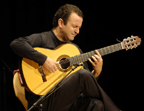




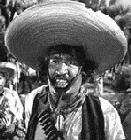
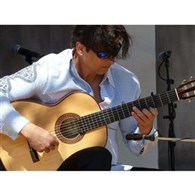
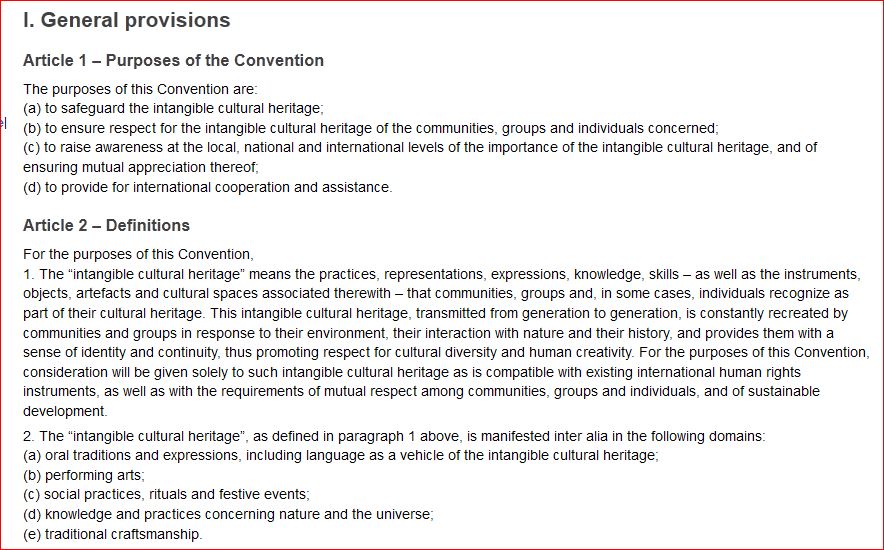


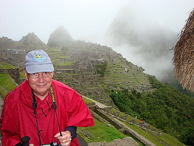
 New Messages
New Messages No New Messages
No New Messages Hot Topic w/ New Messages
Hot Topic w/ New Messages Hot Topic w/o New Messages
Hot Topic w/o New Messages Locked w/ New Messages
Locked w/ New Messages Locked w/o New Messages
Locked w/o New Messages Post New Thread
Post New Thread